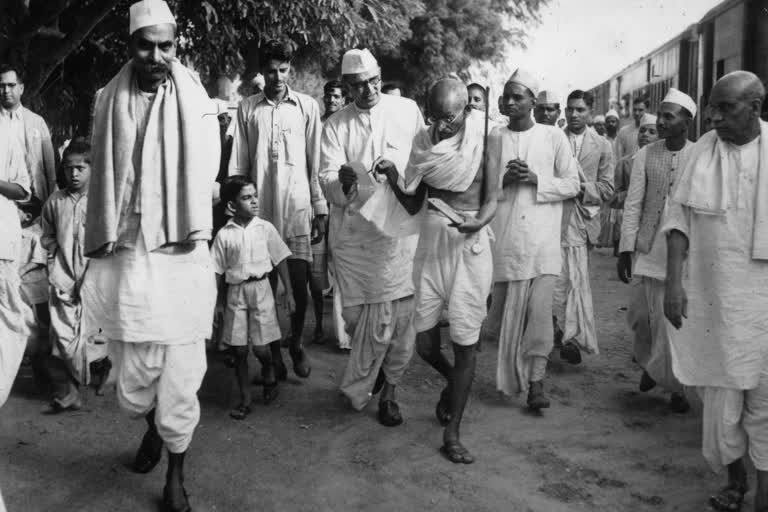Hyderabad:Two central values that Mahatma Gandhi espoused were truth and non-violence. He used them successfully in his method of Satyagrah in an attempt to change the heart of his adversary.
There are organisations and countries which adopt violence as a tool to achieve their objective but ultimately come around to non-violent methods like dialogue and participation in democratic processes to resolve their issues.
The method of conducting peaceful protest, often resorting to fast, was Gandhi's unique contribution to the world, popularly known as Satyagrah or 'an appeal for truth'. A number of organisations, not all of them ideologically believing in non-violence use Gandhi's method of protest. Bhagat Singh fasted while in Lahore jail in support of Jatin Das's fast to demand humane conditions for political prisoners.
The Gandhian methods of padyatras and fasts later adopted by Vinoba Bhave, Medha Patkar, Anna Hazare, Irom Sharmila and others helped them build support for their causes and these leaders were held in high respect by the people and politicians alike because of their Gandhian methods.
Naga National Council and National Socialist Council of Nagaland after having failed to reach an understanding with the government of India launched a separatist movement for sovereignty. Naga Federal government and Naga Federal Army was also formed. Nagaland passed through a phase of violence in which atrocities were committed from both sides - the Nagas as well as Indian armed forces. NSCN leaders refused to meet Indian leaders on Indian soil and meetings used to take place in Europe or Southeast Asia. However, ultimately good sense prevailed and Naga leadership decided to engage with the Indian government in India. Even though the issue still remains unresolved with Nagas who want a separate Constitution and flag, but they have agreed to the concept of peaceful co-existence with India.
Even though in India Maoists and Naxalites continue to fight for their cause outside the parliamentary democracy, the Communist Party of Nepal (Maoist) ended a ten-year civil war by signing a Comprehensive Peace Accord and joined a seven party alliance to end monarchy in Nepal through a parliamentary process. Its most important leader Prachanda or Pushpa Kamal Dahal has held the position of Prime Minister twice. A monthly allowance was promised to members of People's Liberation Army of CPN(Maoist) to stay inside the cantonment.
